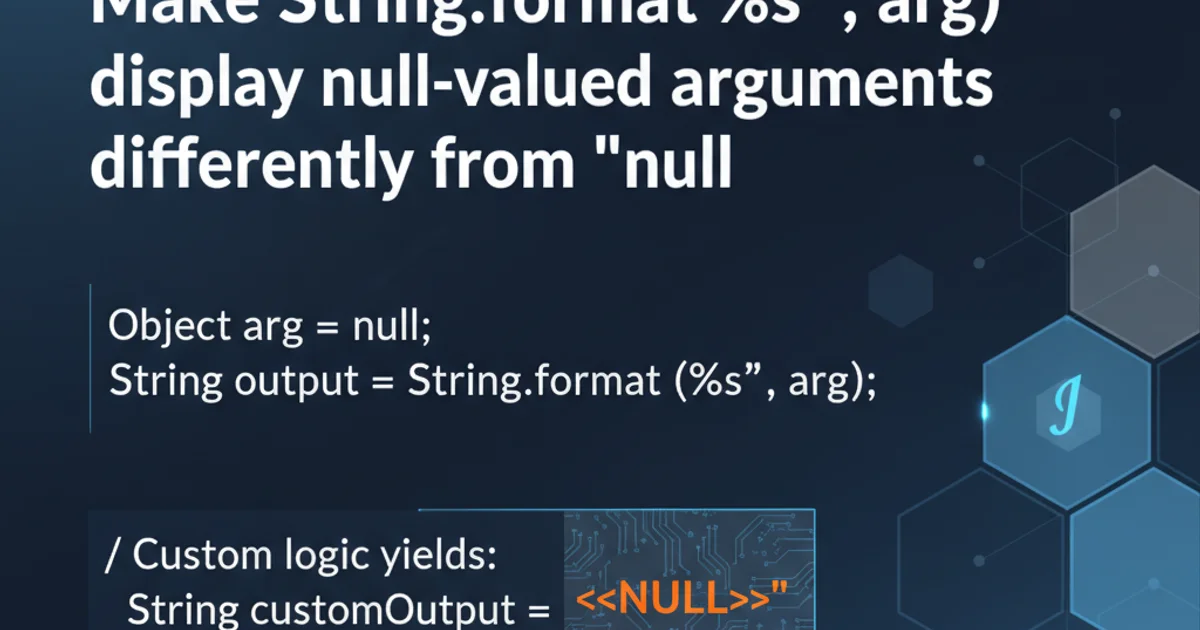What is the purpose of boost::fusion?
Categories:
Unlocking C++ Metaprogramming with Boost.Fusion

Explore the purpose and power of Boost.Fusion, a C++ library that enables compile-time manipulation of heterogeneous sequences, enhancing type-safe and generic programming.
In the realm of advanced C++ programming, particularly when dealing with generic programming and template metaprogramming, developers often encounter the challenge of working with heterogeneous collections of data. Unlike homogeneous containers like std::vector<int>, which hold elements of a single type, there's a frequent need to group and manipulate items of different types in a structured, type-safe, and efficient manner. This is precisely where Boost.Fusion steps in, offering a powerful solution to define, create, and operate on such heterogeneous sequences at compile time.
What is Boost.Fusion?
Boost.Fusion is a C++ library that provides a framework for working with heterogeneous sequences. Think of it as a std::tuple on steroids, but with an emphasis on compile-time operations and an interface that mimics standard library algorithms. It allows you to treat a collection of different types as a single, unified sequence, enabling powerful generic algorithms to operate over them without sacrificing type safety or performance. The library achieves this through sophisticated template metaprogramming techniques, making it a cornerstone for advanced C++ development.
flowchart TD
A[Heterogeneous Data] --> B{Boost.Fusion}
B --> C{Compile-Time Operations}
C --> D[Type-Safe Access]
C --> E[Generic Algorithms]
D --> F[Enhanced C++ Metaprogramming]
E --> FBoost.Fusion's Role in C++ Metaprogramming
Core Concepts and Components
Boost.Fusion introduces several key concepts that are fundamental to its operation:
- Sequences: These are the core data structures, representing a fixed-size collection of heterogeneous types. Fusion provides various sequence types, including
fusion::vector(similar tostd::tuple),fusion::list, and adapters forstd::pairandstd::tuple. - Iterators: Just like standard library containers, Fusion sequences can be traversed using iterators. These iterators are compile-time entities, allowing algorithms to be resolved and optimized during compilation.
- Algorithms: Boost.Fusion offers a rich set of algorithms that mirror those found in the
<algorithm>header (e.g.,for_each,transform,accumulate,find,filter). The crucial difference is that Fusion's algorithms operate at compile time, leveraging the type information of the sequence elements. - Views: Views provide a way to present a sequence in a different form without copying its elements. Examples include
fusion::filter_view,fusion::transform_view, andfusion::joint_view.
#include <boost/fusion/container/vector.hpp>
#include <boost/fusion/sequence/io/out.hpp>
#include <boost/fusion/algorithm/iteration/for_each.hpp>
#include <iostream>
#include <string>
struct print_type
{
template<typename T>
void operator()(T const& x) const
{
std::cout << typeid(x).name() << ": " << x << std::endl;
}
};
int main()
{
// Define a heterogeneous sequence
boost::fusion::vector<int, std::string, double> my_data(10, "hello", 3.14);
// Print the sequence
std::cout << "Sequence: " << my_data << std::endl;
// Iterate and print each element's type and value
std::cout << "\nElements and their types:\n";
boost::fusion::for_each(my_data, print_type());
// Access elements by index (compile-time)
std::cout << "\nFirst element: " << boost::fusion::at_c<0>(my_data) << std::endl;
std::cout << "Second element: " << boost::fusion::at_c<1>(my_data) << std::endl;
return 0;
}
Basic usage of boost::fusion::vector and for_each
Why Use Boost.Fusion?
The primary purpose of Boost.Fusion is to facilitate highly generic and type-safe programming, especially in scenarios where you need to work with collections of disparate types. Here are some key benefits:
- Compile-Time Efficiency: Operations are resolved at compile time, leading to zero runtime overhead for many common tasks. This is crucial for performance-critical applications.
- Type Safety: Unlike
void*orboost::any, Fusion sequences maintain full type information for each element, preventing runtime type errors and enabling stronger compile-time checks. - Generic Programming: It allows you to write algorithms that can operate on any Fusion sequence, regardless of the specific types it contains, as long as the types satisfy certain compile-time requirements.
- Domain-Specific Languages (DSLs): Fusion is often used as a building block for creating embedded DSLs, particularly in conjunction with Boost.Spirit for parsing and AST manipulation, where heterogeneous structures are common.
- Reflection-like Capabilities: While C++ doesn't have native reflection, Fusion can be used to simulate some reflection-like behaviors at compile time, such as iterating over members of a struct or class (when adapted to a Fusion sequence).
- Interoperability: It provides seamless integration with
std::tupleand other standard library components, allowing you to convert between them.
Common Use Cases
Boost.Fusion finds its utility in various advanced C++ programming scenarios:
- Database ORMs: Mapping database rows (which are heterogeneous) to C++ structs and vice-versa.
- Configuration Parsing: Representing configuration settings with different types (e.g.,
int,string,bool) in a structured way. - Message Serialization/Deserialization: Defining message formats with varying field types and efficiently serializing/deserializing them.
- Visitor Patterns: Implementing type-safe visitor patterns over heterogeneous data structures.
- AST (Abstract Syntax Tree) Manipulation: In compilers or interpreters, AST nodes often hold diverse data types, and Fusion can help manage these.
- Tuple-like Operations: When
std::tupleisn't flexible enough or you need more advanced compile-time algorithms.
#include <boost/fusion/container/vector.hpp>
#include <boost/fusion/algorithm/transformation/transform.hpp>
#include <boost/fusion/sequence/io/out.hpp>
#include <string>
#include <iostream>
// A unary function object to convert to string
struct to_string_op
{
template<typename T>
std::string operator()(T const& x) const
{
return std::to_string(x);
}
std::string operator()(std::string const& x) const
{
return x;
}
};
int main()
{
boost::fusion::vector<int, double, std::string> data(1, 2.5, "three");
// Transform each element to its string representation
// The result is a new fusion::vector of std::string
auto string_data = boost::fusion::transform(data, to_string_op());
std::cout << "Original data: " << data << std::endl;
std::cout << "Transformed data (all strings): " << string_data << std::endl;
return 0;
}
Using boost::fusion::transform to apply a function to each element